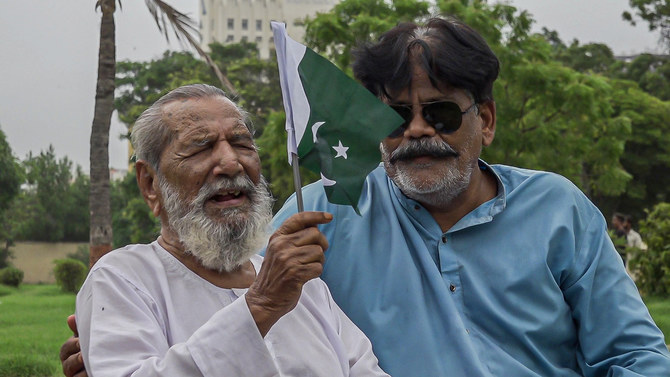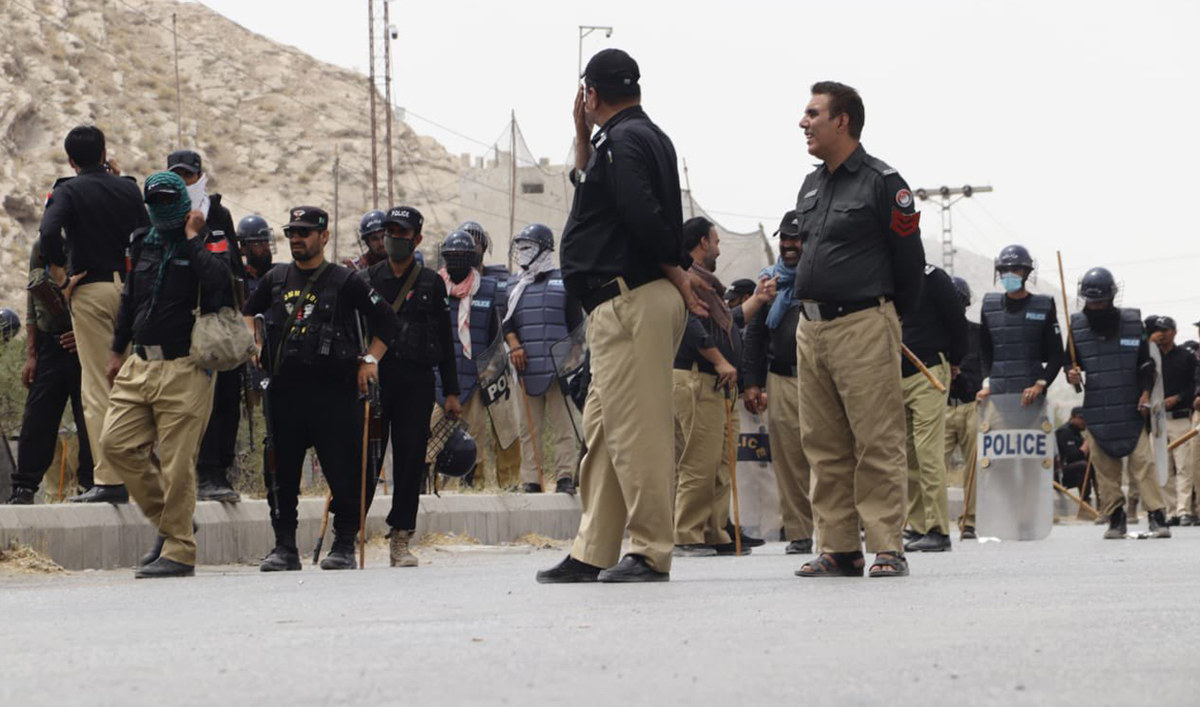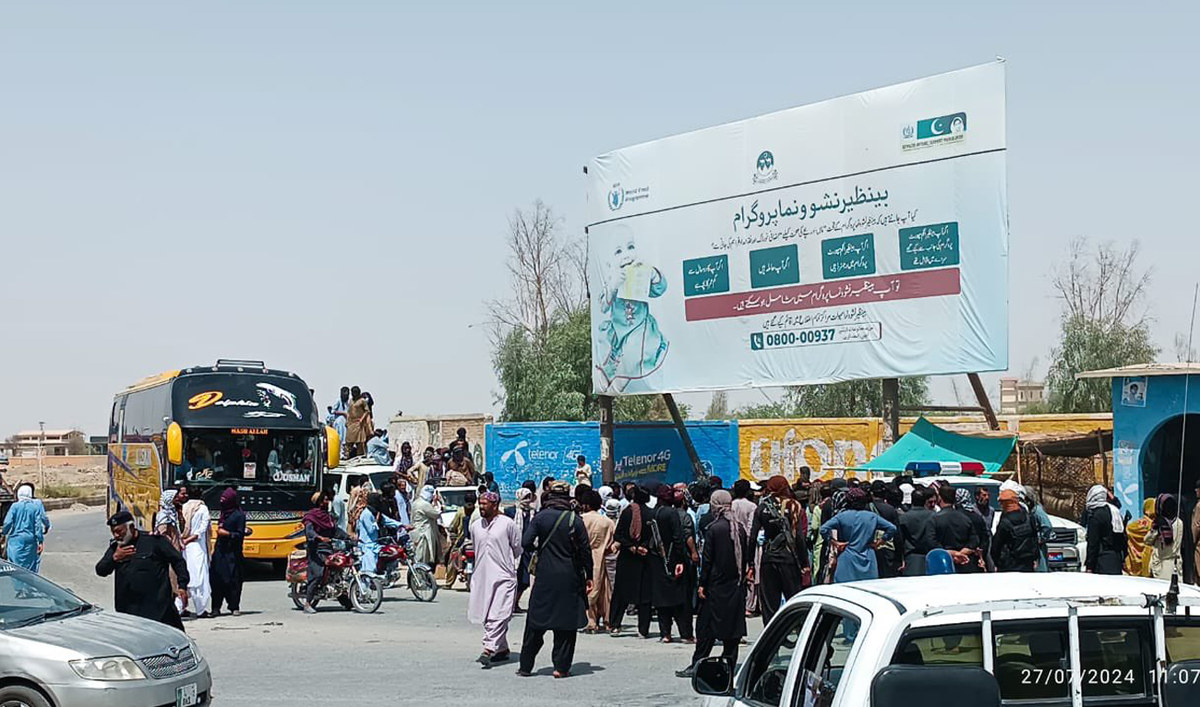KARACHI: With six metal suitcases, three filled with gold and three with clothes, the family of Muhammad Akram Khan fled Jabalpur in the central Indian state of Madhya Pradesh for newly created Pakistan in 1947, leaving without saying goodbye even to best friends and forsaking a sprawling home and a vast business for an uncertain future in Karachi.

In this undated photo, Muhammad Akram Khan, 104-year-old migrant, photographed with the children in his family in his hometown, Jabalpur in India. (AN photo)
Khan’s family was among the millions whose lives were thrown into turmoil by the partition of colonial India into two states, mainly Hindu India and mostly Muslim Pakistan, when British rule ended in 1947.
One of the biggest mass migrations in history was marred by violence and bloodshed as about 15 million Muslims, Hindus and Sikhs swapped countries in a political upheaval that cost more than a million lives.
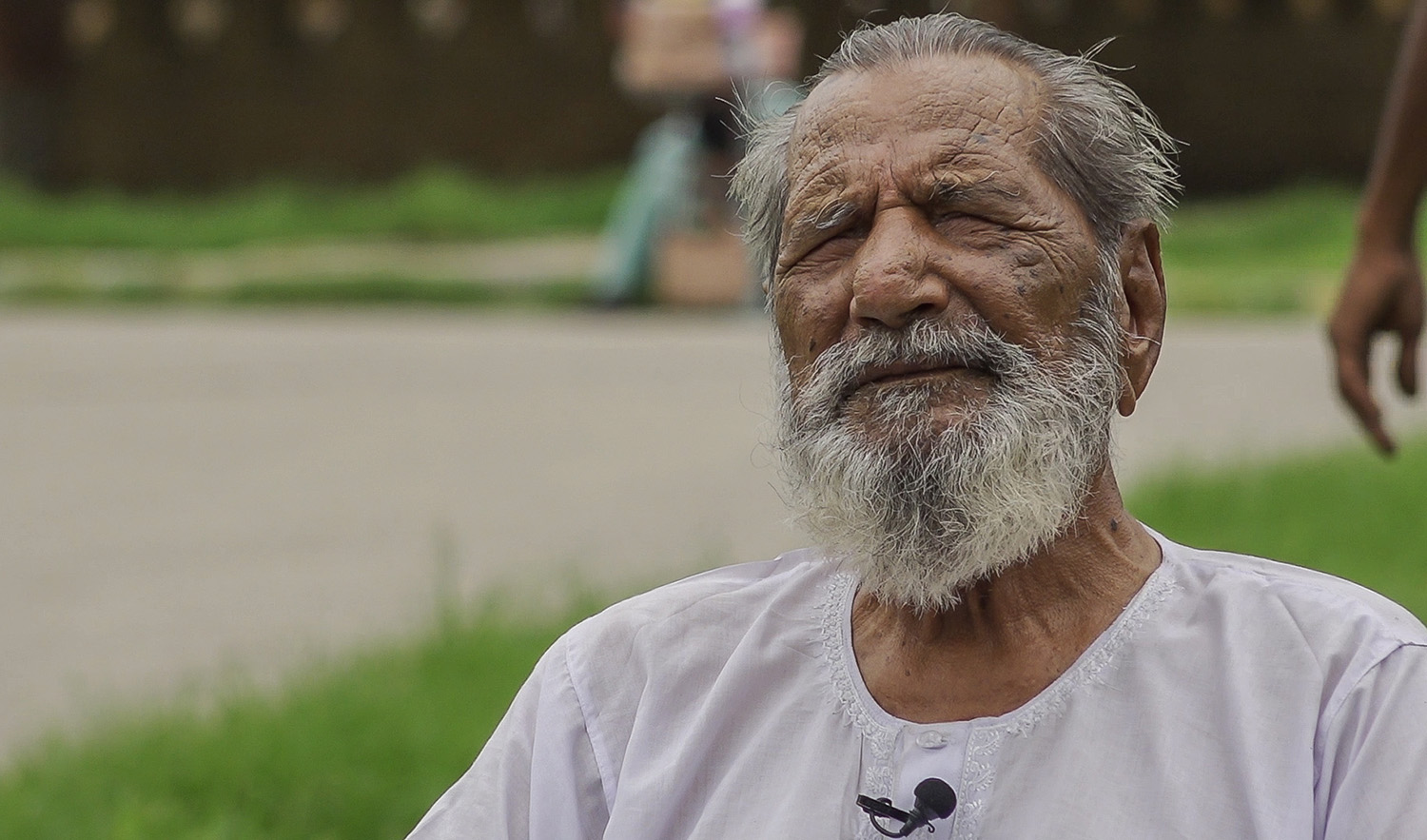
Muhammad Akram Khan, a 104-year-old transporter who migrated from Jabalpur in India after the independence of Pakistan 75 years ago, shares with Arab News his story of partition at Frere Hall, Karachi on August 2, 2022. (AN photo)
Before partition, Khan, now 104 years old, recalled that his family lived in harmony with Hindu neighbours and the young man’s best friend was a neighbour called Shankar Lal. But in the months running up to the partition of India on August 14, Khan said he began to feel unsafe and started convincing his reluctant father to leave for Pakistan.
“I’m alive today but tomorrow they’ll kill me,” he said, quoting his words to his father. “All young men will be killed if we don’t leave.”
When the family eventually left, they took the route of Khokhrapar, a border town situated in Tharparkar District in Sindh, considering it safer compared to Punjab province where much of the violence was taking place. With death looming over him, Khan walked for miles and miles with his family, often carrying his disabled mother on his shoulders, until they made it safely to the other side.
The Sikh personnel who checked the family’s luggage at the border were kind, he said, and the Sikh and Hindus they met along the way, who were en route India, also didn’t show hate.
But the ordeal didn’t end there.

Muhammad Akram Khan, a 104-year-old migrant, chats with his sons and grandchildren in Karachi, Pakistan, on August 2, 2022. (AN photo)
In Pakistan “there was no shade,” Khan said, and his family had to wait a whole day to catch a train to Karachi. At first, the family lived in a small house owned by a relative, before moving to a shanty for several years. Finally, at a cost of Rs2,400, the government allotted them two small quarters in Karachi's Korangi area.
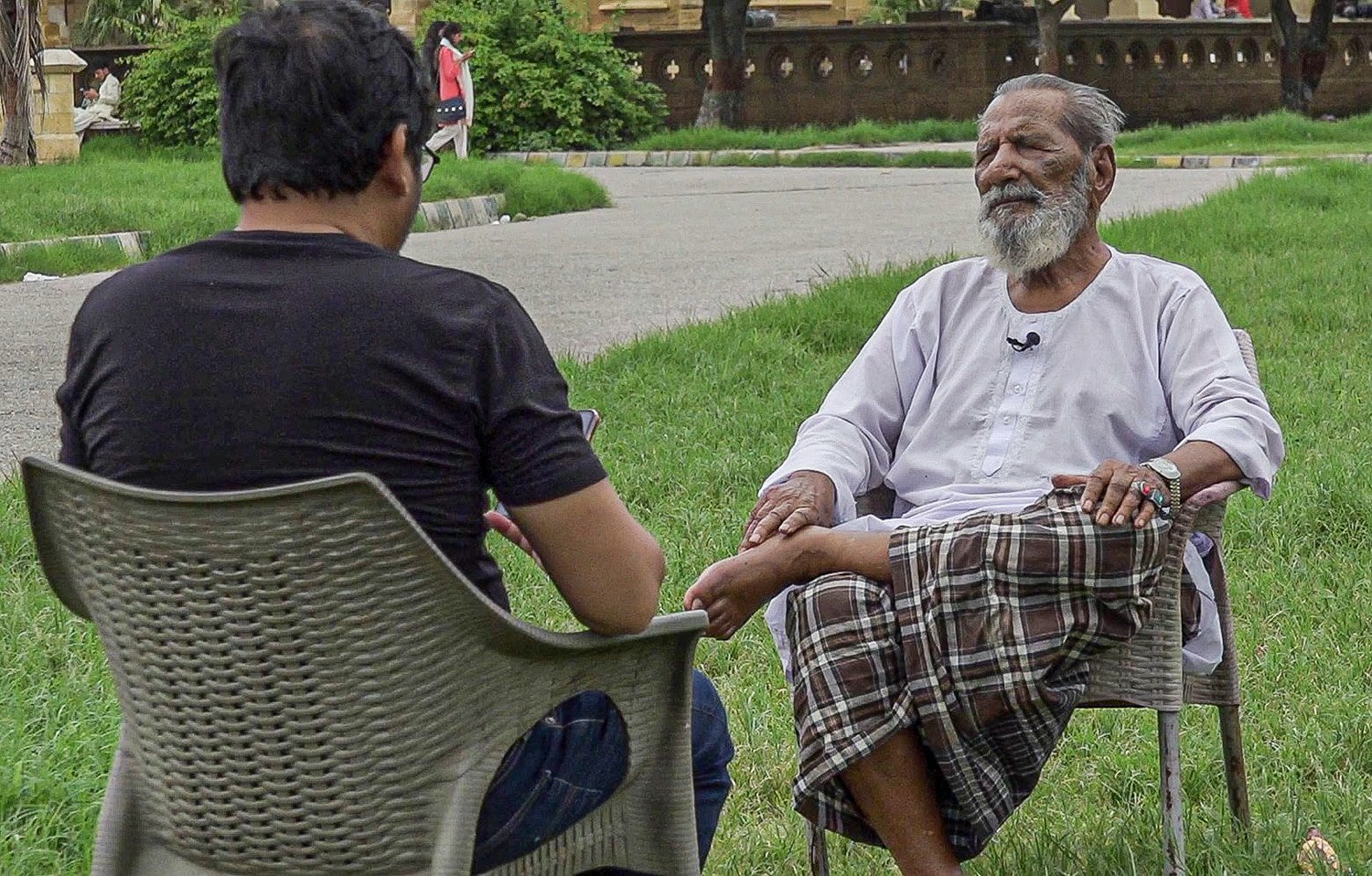
Muhammad Akram Khan, a 104-year-old transporter who migrated from Jabalpur in India after the independence of Pakistan 75 years ago, shares with Arab News his story of partition at Frere Hall, Karachi on August 2, 2022. (AN photo)
It took Khan a few months to grasp the new reality of his life, but he ultimately resumed the scrap business after selling the 12 kilograms of gold the family had brought with them from Madhya Pradesh and eventually bought cycle-rickshaws to launch a transportation business.
“I earned and built bungalows,” Khan said, smiling. “I have constructed 25 to 30 houses, all through my hard work.”
The centenarian said he had lived a full life, tying the knot four times.
“Now at my home there are 200 people,” he said smiling. His eldest daughter is in her 90s and youngest is 14 years old.
Though he does not regret his decision to migrate to Pakistan, Khan said he was distressed by the country’s ever worsening economic situation.
“We dreamt of a great Pakistan,” he said. “We wanted young people to be honest, hardworking and respectful toward their parents and country.”
Khan got his passport a few decades ago and had a strong urge to return to Jabalpur to meet old friends. The dream of traveling back to India, however, has not come true.
“I don’t think I will be able to go now since my eyes don’t open,” he said, wistfully. “In any case, who am I going to meet there after so much time has passed?”



